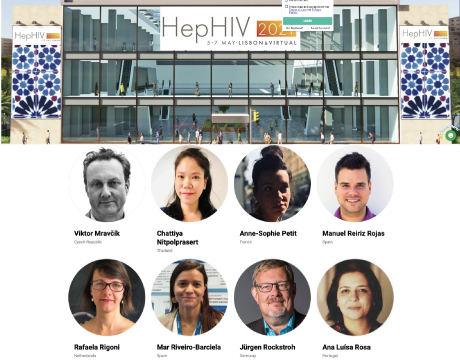
Adam's Love Scientific Abstract presented at
HepHIV 2021, 5-7 May 2021, Lisbon & Virtual Conference
Going cashless in a cash-constrained crisis: Implementation of a COVID- 19 emergency response program for optimising engagement in HIV care among Thai men who have sex with men and transgender women
Tarandeep Anand, Chattiya Nitpolprasert
Adam's Love Global Foundation for MSM and Transgender Health (ALGO), Bangkok, Thailand
Background and Objectives:
COVID-19 is a black swan event that has drastically impacted livelihoods of Thai men who have sex with men (MSM) and transgender women (TG) living with HIV. Multiple barriers in terms of access to HIV care and antiretroviral (ART) refill have also emerged together with financial and travel related challenges. We describe the implementation of a COVID-19 emergency response program for improving engagement in HIV care.
Methods:
The COVID-19 response included technology-based HIV and COVID-19 eCounseling and clinic linkage support, video resources for real-time updates on accessing/refilling ART at HIV clinics, distribution of 30$ (per person) electronic gift cards and vouchers for supporting food, essentials (at largest Thai supermarkets such as Tesco Lotus) and fuel for clinic visit transportation, and COVID-19 prevention packages (e.g. face masks).
Results:
Between February 2020 – January 2021, COVID-19 response videos engaged 45,423 people. HIV testing, treatment and linkage support was provided to 548 MSM. Common inquiries addressed included ART refill options during lockdowns/travel restrictions; clarity on ART dispensing schedules at the local clinics; assistance with linkage to new HIV clinic for MSM relocating due to job loss; and psychosocial support to overcome COVID-19 related fear and stress. The 30$ electronic gift cards and vouchers were distributed among 160 MSM/TG financially impacted by COVID-19. Most participants redeemed cards/vouchers for buying food at supermarkets within 3 days upon receiving them. Distinct food acquisition and variety of shopping patterns were reported including fruits, fresh food, dairy products, ready-to-eat food, dry grocery, beverages and snacks. Travel vouchers including ferry tickets were especially beneficial for MSM/TG located in remote islands who had lost their jobs due to no tourists and helped them visit mainland HIV clinic. “I can’t afford ferry costs to visit HIV clinic during COVID-19. The ferry voucher is extremely helpful to support my transportation and retention in care.”, shared one MSM participant located in South Thailand.
Conclusions:
Online support, electronic gift cards and vouchers helped improve engagement in HIV care among MSM/TG most impacted by COVID-19 crisis. As Thailand struggles with the second COVID-19 wave, more such programs need to be implemented until vaccines are readily available.